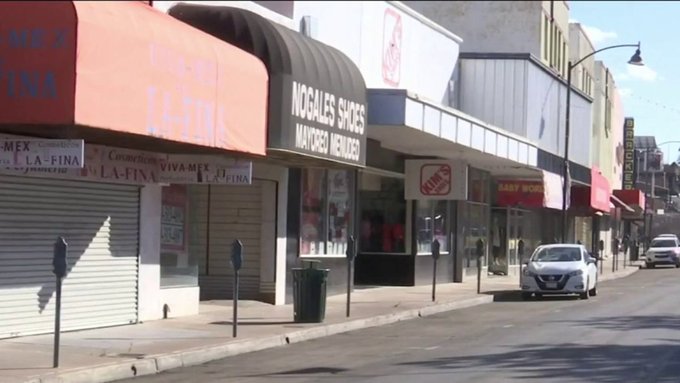Merchants on the border with Mexico hope that this year’s sales will allow them to recover from multimillion-dollar losses after months in which the United States has restricted the passage of Mexican consumers who live on the other side of the border.
“We are not going to reopen, we are going to revive,” said Jason Wells, executive director of the San Ysidro Chamber of Commerce, a district of the city of San Diego located just north of the border with Mexico.
The US Government announced that on November 8 it will open the air and land borders so that Mexicans with entry permits and who demonstrate that they have been vaccinated against covid-19 will be able to cross to make purchases.
It is about hundreds of thousands of consumers who had been prohibited from crossing since March of last year as a measure of the United States Government to prevent the spread of the coronavirus between both sides of the border.
While the public health benefit was questioned by the affected businesses, as tens of thousands of legal residents and U.S. citizens cross daily, and the restrictions were limited to only visitors, the impact on sales was devastating, according to the merchant leader.
“The end of restrictions on non-essential border crossings could not be more timely,” Wells said of the expected change in what is considered the world’s busiest international crossing.
He explained that more than 75% of sales in San Ysidro stores are registered between November 20 and January 6, this goes from approximately the so-called Black Friday (Black Friday), includes December sales, and concludes with the Day of the Three Wise Men, who bring toys to the millions of children in Mexico on January 6.
“What we lost we will no longer be able to recover, but it is very likely that only in this coming sales season we will recover our sales rhythm,” he said.
In the 19 months that the border restrictions lasted, San Ysidro merchants lost more than $ 1.3 billion in sales and one in five stores had to close for good, Wells said.
This contributed to the fact that more than 2,200 people, many of them the economic support of their homes, were left without employment.
Mexicans who live in the border state of Baja California and cross to make purchases translate into more than 90% of the consumers of San Ysidro businesses, indicated the direction of the Chamber of Commerce.



















































































